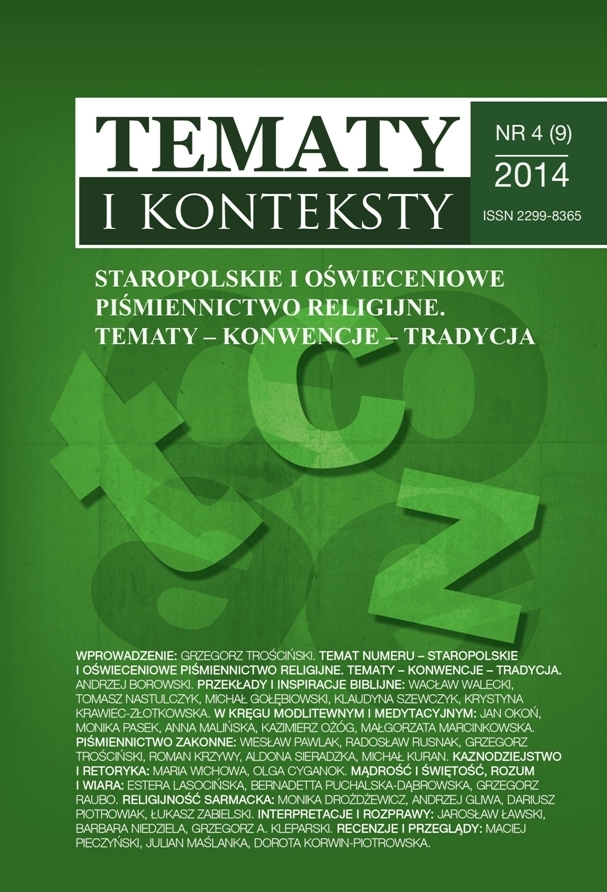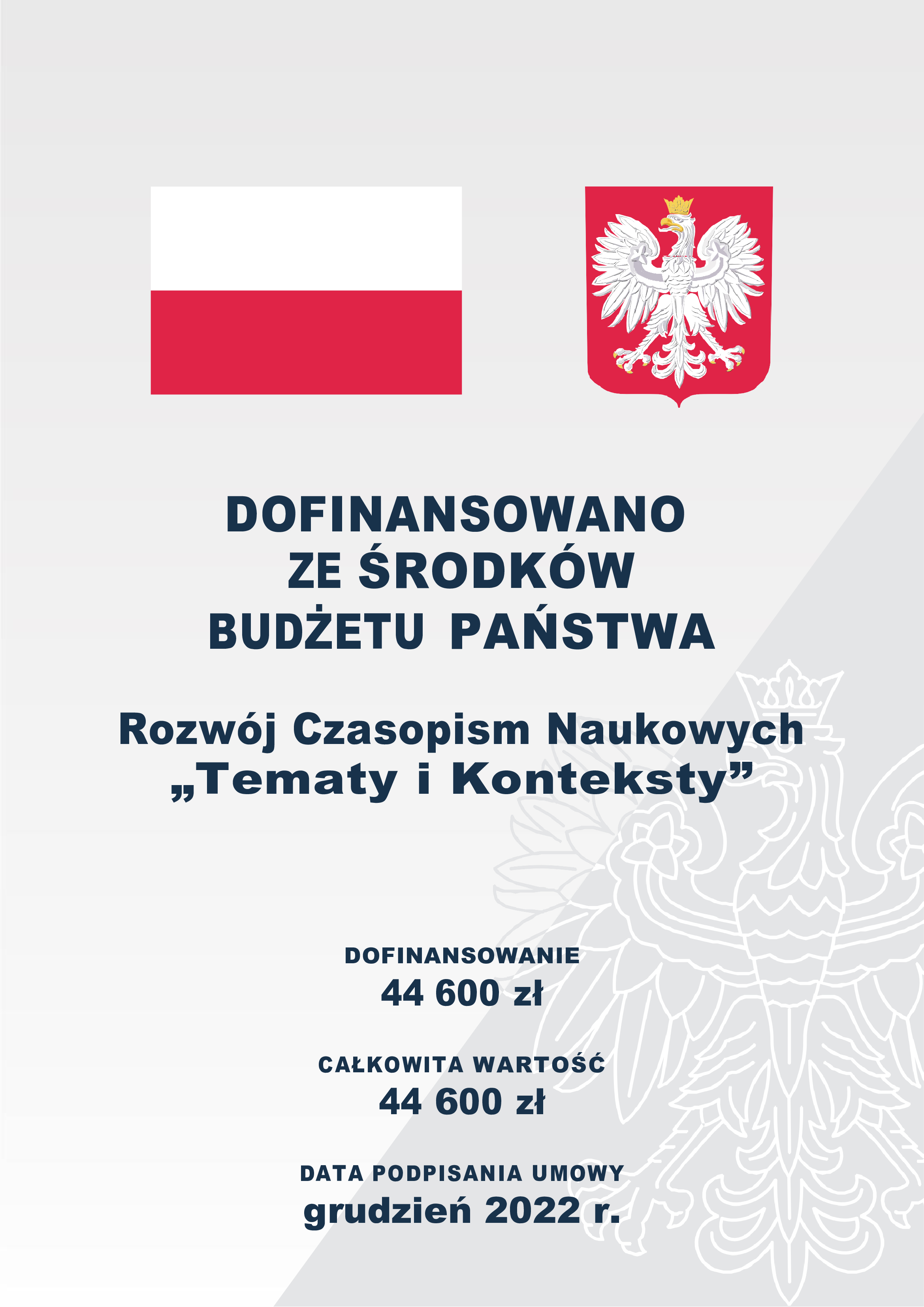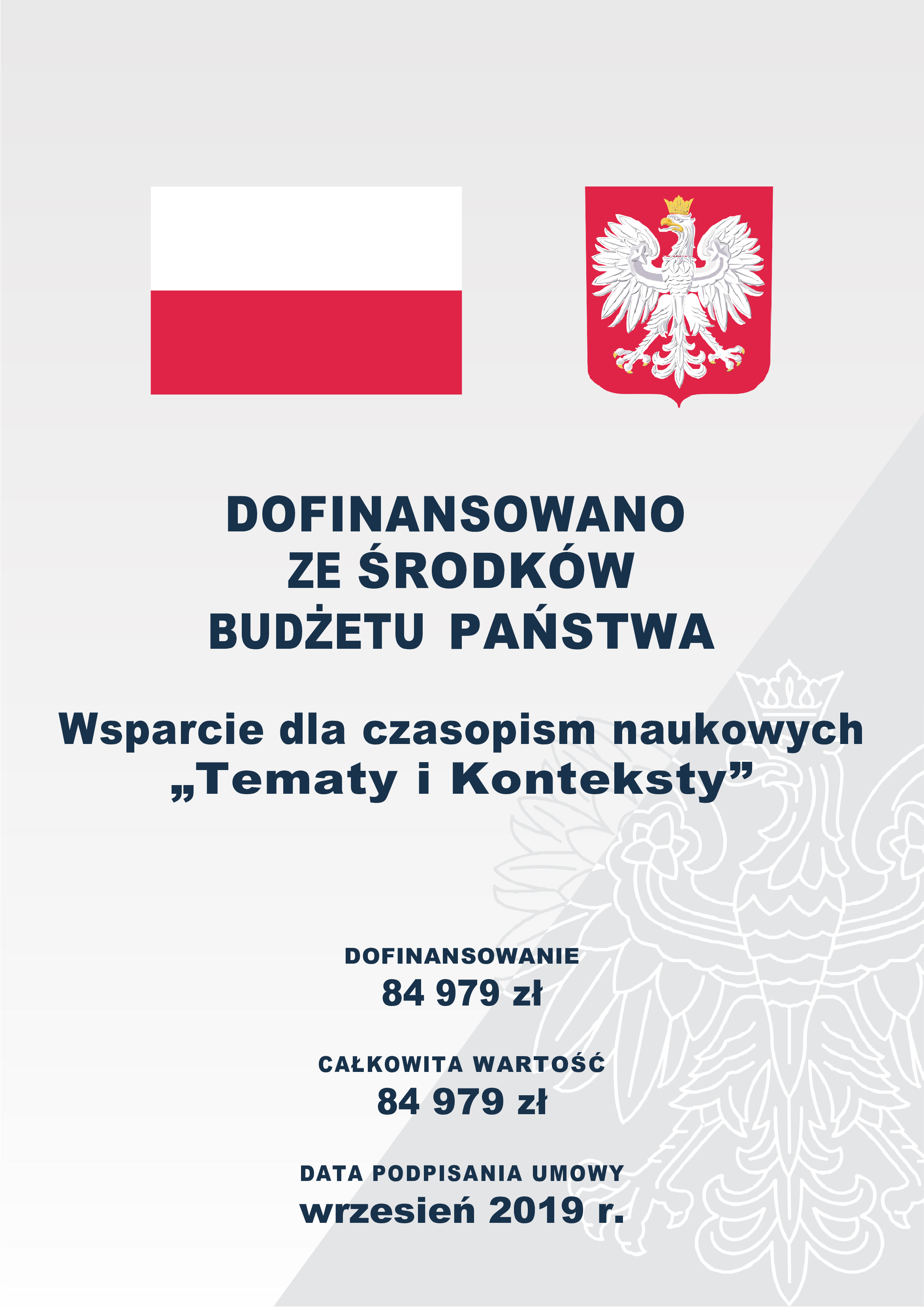The Bezoar of Human Tears of the Plague by Walenty Bartoszewski as Example of "Spiritual and Physical Recipe" during the Period of the Plague
Keywords:
lyrical song, religious poetry, Jesuit poetry, plagueAbstract
The article constitutes an attempt to interpret a little known collection of poems by the Jesuit priest from Vilnius, whose publication was both the reaction to the outbreak of plague in Vilnius between 1629–1632 and the testimony of increased religiousness in the face of the epidemic. The author presents Walenty Bartoszewski and his poetic oeuvre. She briefly describes the social background of those events. Moreover, she characterizes other texts from the 16th –18th centuries that deal with the topic of the epidemic. They include: sermons, secular works, religious songs and prayer works. The core of the article constitutes the interpretation of the collection by Bartoszewski in the context of the most important elements of the volume "Bezoar z łez ludzkich…" [”The Bezoar of Human Tears in the Time of the Plague”], which are as follows: the indication of religiousness at the beginning of the 18th century, the realities of the epidemic in a lyrical work, the vision of God and Christ, protection of the faithful against the bubonic plague, and the intercession of Mother of God.Downloads
Download data is not yet available.
Downloads
Published
2014-12-20
How to Cite
Pasek, M. (2014). The Bezoar of Human Tears of the Plague by Walenty Bartoszewski as Example of "Spiritual and Physical Recipe" during the Period of the Plague. Tematy i Konteksty, 9(4), 112–136. Retrieved from https://journals.ur.edu.pl/tematyikonteksty/article/view/2111
Issue
Section
Main subject
License
Copyright (c) 2014 Tematy i Konteksty

This work is licensed under a Creative Commons Attribution-NonCommercial-NoDerivatives 4.0 International License.




